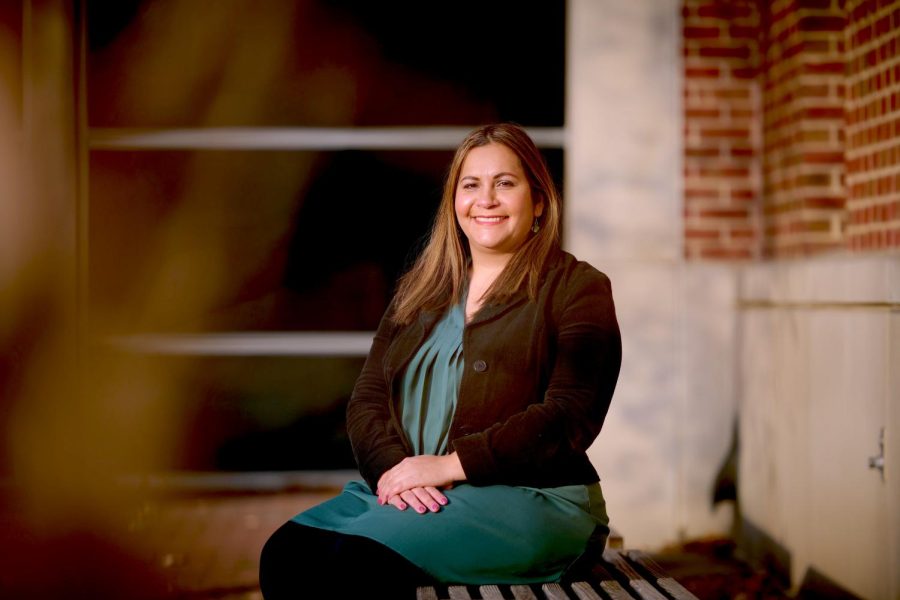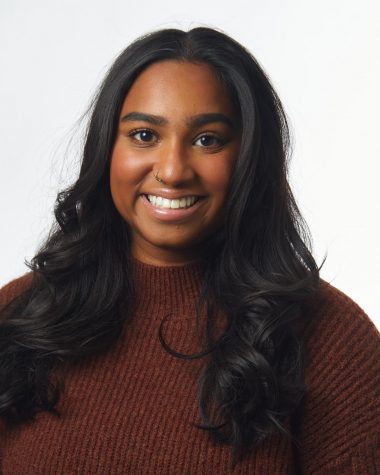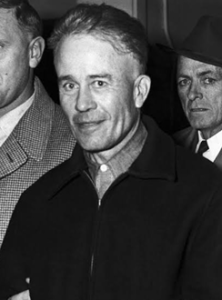Humans of UWL: Dina Zavala
December 6, 2022
Dina Zavala is the interim vice chancellor of the Diversity & Inclusion division at the University of Wisconsin-La Crosse. Zavala was born in Honduras, where she graduated with a degree in elementary education and taught kindergarten there as well.
“When I moved to the United States, I had to go back to school to get my degree to teach here,” she said.
Zavala joined the UWL family in the fall of 2019, and though she has only been in this position for five months, Zavala’s background in education is extensive.
“Before I started in higher education, I was a K-12 teacher. I used to teach fourth grade, and I also taught high school Spanish around Wisconsin,” said Zavala. She has taught Spanish in River Falls and various private schools in Hudson. “At the time, [teaching] Spanish was the obvious choice. I spoke it and I’d taught in a school system before, so that’s what I went with, and I really enjoyed it.”
It was through this experience that Dina realized “just how little most American high schoolers know” when it comes to Latin American languages and cultures.
“Teaching students about Latin America, about immigration, about racial disparities in the United States, you know…teaching them about all these really important topics kind of sparked my interest in [Diversity, Equity, and Inclusion (DEI)] work. Then I decided that K-12 was not my calling anymore and decided I wanted to get into higher ed.”
After discovering a DEI-related career in higher education, Zavala moved to North Dakota where she continued teaching Spanish at Valley City State University for the next eight years.
“I taught Spanish cultures and languages classes, Spanish literature classes, grammar classes, you name it,” said Zavala. She also said that teaching Spanish 101 was her favorite and that it “brought her many wonderful experiences.”
“Teaching Spanish and also directing the Spanish program at North Dakota opened my eyes a lot. One of the things I soon realized about working at a PWI (Predominantly White Institution) is that you are maybe the only person who is ‘diverse.’”
Zavala recalled that historically excluded students, specifically Latiné students, would “seek her out” and would want to talk with her specifically. “Remember that this was before I entered a director position in DEI, so even though my department was in languages, if students had an issue, they would always come to me.”
Zavala felt she was able to connect with many Latiné students at the North Dakota school, as there were “so many and from so many different areas of the country.”
“I think it gave them a little piece of home, you know. They would say I sounded like their mom. There were also situations where I advocated for students, and that’s when I realized what working at a PWI meant, and more importantly, what it meant for minority students,” said Zavala.
According to Zavala, students at her previous institutions did not have the resources they needed, saying oftentimes the universities were “really small and did not have the infrastructure or budget for the proper resources” that UWL has.
This is when Zavala became involved with DEI work on her own. She joined together with other faculty members to form committees for minority students that would supply the resources they needed.
“It’s similar to the other faculty members here at UWL; when they see ‘Oh, we don’t have this, let’s create a committee for it!’” It was after her first experience as a faculty member at Valley City State that Zavala knew she wanted to go into Student Affairs work.
“I was finishing my Ph.D. at the time, so I decided that was going to be my calling. I then became a director at another smaller institution in North Dakota, and I loved it.”
Zavala said she feels a connection between language work, and DEI work, as DEI work “has a small part to play” in how languages are taught at universities.
“The thing that I loved the most about that position was the opportunity to collaborate and connect with people,” Zavala said, thinking back on the times when she would work together with that institution’s School of Education, “If you don’t collaborate, DEI work doesn’t work.”
Zavala said she “applauds UWL on its’ DEI division,” which stands alone from Student Affairs.
“Most universities’ diversity and inclusion divisions operate as a branch under Student Affairs, so for UWL to have its own division is really impressive. I love how many different offices UWL has. It’s not only the Office of Multicultural Student Services (OMSS) that we’re talking about, but also the ACCESS Center, the Pride Center, and TRIO programs. When you have a lot of structure it makes my position as Interim Vice Chancellor for DEI that much stronger.”
Zavala originally came to UWL as Assistant Vice Chancellor to Barbara Stuart, former Vice Chancellor for Diversity & Inclusion. Dina said that having a woman of color as her boss is what originally attracted her to the position, and that “she doesn’t know where she’d be if things were different.”
“It was so eye-opening for me and so rewarding,” said Zavala, “To have a mentor and sponsor who supported me so much meant the world. I not only realized how comfortable I was with her, but she understood things that I normally have to explain.”
The two soon discovered many commonalities between Latiné and Black communities. “Sometimes we would be sharing stories and I’d tell her, ‘Barbara, that’s the same for me, that’s my father!’”
This positive experience for Zavala made her more aware of the ever-changing demographics and increased diversity seen around the country, and furthermore, how that is not seen at the college level.
“We know our demographics are changing, and we know our country’s more diverse than ever, but we still have yet to replicate that in higher education. If we are talking about being inclusive, we also need to mirror that in our staff and faculty.”
Zavala also hopes to eliminate students needing to “go the extra step” to find the appropriate resources to help them and said there is a “college language barrier” that new students are needing to overcome.
“First-generation students already know, there’s a lot of languages that need explaining. Like office hours, for example, what is that? So, that’s one of the things that also need to be made more inclusive.”
In her current directorial role at UWL, Zavala said that feeling connected to your school, and having a sense of belonging is important for a positive college student experience. “Having folks of color in bigger, more important spaces makes those who feel alone like they have a community.”
Zavala said that her favorite part of her job is that she now has the ability to see all the pieces coming and working together, like a “well-oiled machine.”
“I have the opportunity to see the university from a different scope. Sometimes we get so involved in our own things that we forget that we already have ‘that’ resource, and we end up duplicating it,” said Zavala.
She also said that being in a cabinet position, she feels it has helped her get a wider, bird’s-eye view of what’s happening on campus.
“We know there’s a lot to do, but that doesn’t mean that nothing is being done right now, or that no one’s doing anything. Being able to see the big picture, see opportunity, and see the potential for more at UWL is very exciting.”







